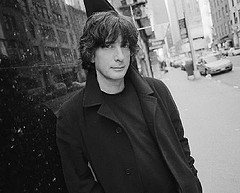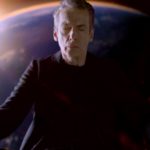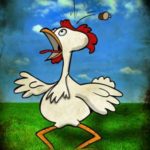The Importance Of Reading: A Biased Opinion
I’ve been quoted as saying my grandkids are cuter and smarter than yours. The fact that I’m biased doesn’t mean it’s not true. But since I’m a grandmother, and everyone knows what grannies are like, people aren’t usually offended when confronted with a statement like that. In fact, when the hearers are grandparents too, they smile indulgently and nod, thinking, “Of course she thinks that. But I happen to know mine are far superior.”
Sometimes it’s impossible to be completely objective. But being biased doesn’t necessarily mean we’re wrong; having an intimacy with the subject can give us a deeper understanding and appreciation than someone with little familiarity with it.
Take, for example, Neil Gaiman sharing his thoughts about reading.
Having earned his living at writing for three decades, Gaiman is not an objective observer. As the recipient of numerous international awards—the Newbery and Carnegie Medals, four Hugos, two Nebulas, one World Fantasy, four Bram Stokers, and six Locus Awards, for an incomplete list—it’s fair to assume he enjoys a greater intimacy with books than your average man on the street. Hailed as being one of the creators of modern comics, he’s a prolific author of a variety of fiction and nonfiction prose, poetry, song lyrics, screenplays and dramas, and highly acclaimed journalistic accomplishments. This all puts him in the category of people who know – and especially, people who care – about reading, writing, and books.
Biased or not, when he speaks on the subject, the rest of us would do well to pay attention. And speak he did, on October 14 this year at a lecture for The Reading Agency in London, UK.
As the British national newspaper The Guardian reports, Gaiman has some good stuff to say. I’ll step aside and let you read it.










































Allow me a paragraph or two to geek out over Gaiman before getting to what he had to say.
Neil Gaiman is the closest thing to Lewis or Tolkien that modern fantasy has managed to produce, especially if you consider his range of output along Lewis’s work. His work is brilliant at combining the mundane and the extraordinary…I first heard of him when he wrote the Doctor Who episode “The Doctor’s Wife” (one of the best episodes of the revived series, not only for prose and story but as a piece of a larger mythology) and promptly ran to find everything else he’d ever written.
He’s got urban fantasy and fairy tale and the Sandman tales, which create a new mythology around the Endless “who are not gods and never will be”, personifications of Death, Destiny, Dream, Destruction, Desire, Despair, and Delirium.
And as for what he says–spot on. I’m a college student, and even with my required reading, I still take the effort to bike to the public library and pick up materials I otherwise wouldn’t have access to, ranging from DVDs to books and audio dramas. My budget is small, but libraries are big…bigger on the inside.